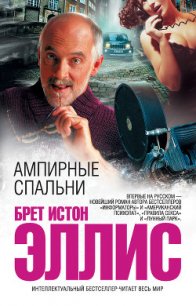Third man out - Stevenson Richard (читать хорошую книгу полностью .TXT) 📗
If he had the goods on Ronnie Linkletter, he must have had the same goods on McFee."
"Who'd have believed him?" I said. "Linkletter and all the people at the motel would have denied everything. And the bishop was held in such high esteem that the community would have been outraged by the accusation, and Rutka might just have had some awful accident, or he'd have been pounded senseless by a couple of Albany police detectives who claimed he resisted arrest in a drug deal. Even though McFee may have been the man he most wanted to get, that's one outing Rutka couldn't have gotten away with."
"I suppose you're right."
"It's only with the pressure of the murder investigation," I said, "that all the principals are being forced to tell what they know and the bishop is being revealed as a mega-hypocrite. Without the murder investigation, it could never have happened."
"It's a cruel irony," Bailey said, shaking his head. "It's a good thing, too, that you happened along to solve the case. I doubt I could have done it on my own-me not being nearly as smart as you are, Mr. Strachey."
"Give me a break," I said. "Okay, so I've got the files. You knew all along I had them, didn't you?"
He laughed.
"Anyway," I said, "I didn't just happen along. John Rutka hired me after he'd been shot in the foot and his house was firebombed.
Of course, it turned out he and Sandifer had been behind all that."
"The way it turned out," Bailey said, "it's almost as if he'd planned the whole thing-to expose the evil McFee. Rutka was a devious kid and I wouldn't put anything past him. But I don't suppose he would sacrifice his own life even to get McFee. McFee isn't worth it."
"No, you're right. He isn't."
Inside the church, Ann Rutka was seated in a front pew with her three teenaged children, and behind her were fifteen or twenty people Bub Bailey said were cousins, employees of the hardware store, and the family attorney, David Rizzuto. I sat on the opposite side of the aisle with Timmy and Bailey. Up ahead of us were Eddie Sandifer and five men in Queer Nation T-shirts.
Sandifer turned around once and spotted me. He gave me thumbs-up and mouthed what I thought was "Thank you."
The mass, said by the St. Michael's rector, was meditative and serene and accepting of life's vicissitudes, and the Queer Nation crowd sat there and kept quiet. The priest's eulogy made no specific mention of John Rutka's politics or sexual orientation but did refer once to his being a man who "wanted to help the downtrodden."
At the conclusion of the service, the coffin was carried out by six of the cousins, Rutka's Queer Nation friends apparently not having been asked to participate.
Outside, I asked Sandifer why he and his friends, who had been so central to Rutka's life, had been so peripheral to the ceremony marking his death.
"He's gone now," Sandifer said unemotionally. "What difference would it make? John told me a long time ago that when his time came he wouldn't mind being buried by his family and laid to rest with his parents. He said himself it would make other people happy, and what difference could it make to him?"
"I'm a little surprised, though, that he didn't insist on a nonchurch send-off," I said. "Knowing what we know now."
"I guess I'm a little surprised too," Sandifer said, and then thanked me for the investigative work I'd done. "I'm going to pay you for your work, too. I've talked to the Rutkas' lawyer, and he'll send you a check when he receives your bill. John was going to pay you and I think he'd want me to do the same. I'm going back to New York. The only reason I came to Albany in the first place was to be with John. But you'll be paid, Strachey."
"If you can afford it, fine. There's no rush, though."
"It won't be long," he said. "Just send the bill to Dave Rizzuto." Sandifer drifted off to the Queer Nation group where they were being animatedly chatted up by Timmy, a nominal Jesuit but actual Platonist who was always ready to let the question lead where it might, short of poor taste.
There was to be no graveside service, just a family brunch at the Rutka house, and I went over to beg off on the family get-together and to wish Ann well in her struggles. Between drags from a Chesterfield, she introduced me to lawyer Dave Rizzuto, who congratulated me on finding the killer and then excused himself and said he had to be on the tennis court in twenty minutes, no offense meant. Ann said she wasn't offended, just envious of anybody who had the time to do anything just for the fun of it.
When Rizzuto was gone, Ann began to thank me profusely for my help, and I said, "I thought after a point I'd be doing it as a public service, but it turned out that won't be necessary. Eddie's going to pay me my usual fee. Of course, he hasn't seen the bill yet."
She laughed. "Oh, he'll be able to handle it. Now that he's rich."
"He is? How did that happen? I thought John just left him a few thousand dollars."
"Dave Rizzuto told me this morning there's a huge life insurance policy with Eddie as the beneficiary. John took it out about a year ago. Dave set it up through his brother's insurance agency, that's how he knows about it. In a week or so, Eddie will be about eight hundred and fifty thousand dollars rich. How's that for not getting left in the lurch? Eddie didn't even know about it until yesterday."
I said, "D.R."
"What's that?"
"John's financial records show fourteen thousand dollars in cash disbursements over the past year to a D.R.- Dave Rizzuto. Why would he have paid in cash, though, and not by check, for a legitimate insurance policy?"
I thought I knew the answer to my own question, but I let Ann, who knew her lawyer, say it. "Hey," she said, "you know how some lawyers are. It was probably Dave's idea. The more untraceable cash they have floating around, the more they can cook the books and not pay taxes on actual income. It was probably part of some complicated scheme of Dave's and his brother's. By going along with it, John probably got a break on the premiums. It's just the way most people do business these days, that's all.
It's a lot harder in the hardware business not to be honest, but you know lawyers."
"Well," I said, "eight hundred and fifty thousand dollars doesn't buy what it used to buy, but it's still a decent piece of change."
"Yeah," she said with a raised eyebrow, "especially in Mexico."
"Mexico?"
"Dave says the money is going to be forwarded to a Mexican bank in New York. I didn't say anything to Eddie, because I didn't think this was supposed to be any of my business, and I'm probably not supposed to be telling you. So don't say anything to Eddie. But eight hundred fifty thousand dollars must be about a zillion pesos."
Timmy came over and said, "Eddie says good-bye and thanks again. They're all headed back to New York now."
"He's leaving right away?"
"He's leaving John's car for his niece and he's riding with his friends from New York. They're just stopping at the house to pick up his things."
"Eddie packed up most of his belongings last night," Ann said. "I stopped over and we talked. It meant a lot to both of us, I think.
He said such sweet things about John. I cried all over again."
Sandifer and the Queer Nation group were climbing into two cars, one a commodious old Buick station wagon. I excused myself and walked over to Bub Bailey, who was talking with a couple of Rutka cousins.




